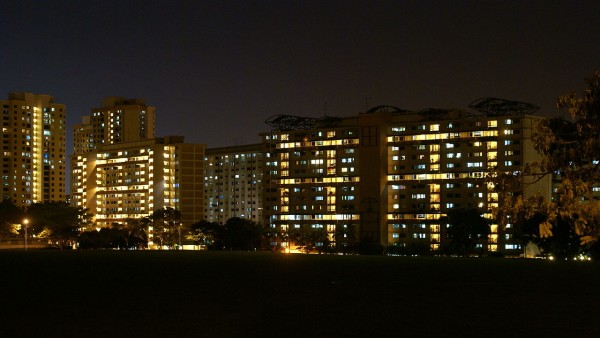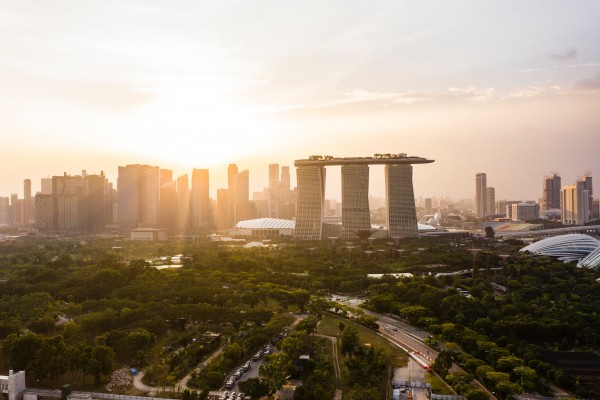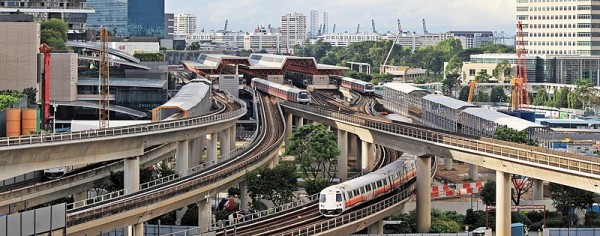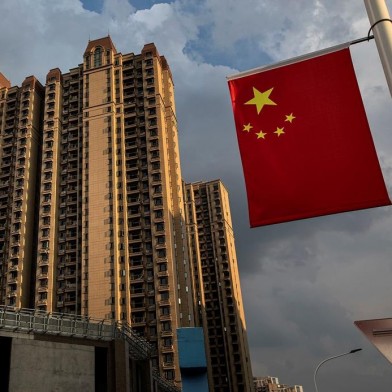Singapore is a very expensive place to live — property prices are sky high, rent can be even higher. This article explains how expats and locals deal with the ongoing property price increases.
Expats and locals deal with property prices in Singapore in different ways. An expat will likely look for a place to rent, whereas a Singaporean or Permanent Resident will buy their home.
A home is an investment for the future for locals while for the expat who may not know how long his tenure will be, a rental may appear to be a better option – but is it, though?

Housing and Development Board (HDB) flats in Singapore. When buying one of these flats, at least one person must be a Singapore citizen or permanent resident. Image: Wikimedia Commons.
Property prices in Singapore have been known to be the highest in the world for quite a long time. This has led to many people being priced out of the property market here. Expats and foreign buyers have been mostly responsible for Singapore's property boom in recent years. Most of the foreigners arriving in Singapore are coming from China, India, Indonesia, Malaysia, and the Philippines.
While it is great to see so many renters having a wide array of properties to choose from, it can also be frustrating because rents are very high and there isn't enough affordable rental accommodation available.
A room in a shared flat could cost upwards of SG$1,000 (US$715) a month while a one-bedroom apartment could cost anywhere between SG$1,000 and SG$4,000 (US$2,863), depending on location, type and tenure. Most rental units are unfurnished apart from appliances.
Expats earn more, pay more?
Expats are often seen as being driven by higher salaries and perks, which may contribute to the perception that they are able to afford more expensive properties. There is generally a higher level of disposable income among expats, which gives them greater flexibility in their housing options compared to locals.
High housing costs across the board have meant that many expats now tend to rely on relocation packages that offer support for housing expenses, although companies are moving away from compensation packages that involve housing instead of higher salaries.

Singapore's property prices and rental market has made it an expensive place to live. Photo by Kirill Petropavlov on Unsplash
There is a misconception that expats who rent property are able to pay higher rents due to their higher salaries. Locals and expats tend to rent similar apartments at similar prices, although there may be more landlords willing to rent to expats. Expat renters are likely to pay higher rents if they live alone or in more exclusive neighbourhoods.
Expats who own property tend to purchase properties in similar locations and at similar prices as locals do.
Expat challenges of finding a home in Singapore
Expats who have just arrived in Singapore may be shocked to find out just how expensive the property market can be. While they may be used to paying high prices for housing back home, Singapore is still a huge change. Not only are prices much higher than what they would expect, but there are also extra costs that can come as a surprise.
Here are some things expats should know about buying property in Singapore:
- Availability of land for development is limited
- High stamp duties and taxes
- Restrictions on foreign ownership of property
- Demand outstrips supply
- Property developers build for high-end buyers
- An increase in expats and foreign buyers drives the market
What can expats do to make buying property in Singapore easier?
For expats looking to buy property, the most popular options are landed homes and private apartments. Government public housing is not open for sale to expats.
However, long, long before you buy your airticket and pack up your family for the move, do your research on rental and purchase prices and do these two things:
- Get pre-qualified
Before you start looking for a home to buy, it's important to get pre-qualified by your bank or mortgage broker. This means they will tell you how much money they'll lend you based on your income and other factors like your credit score. Getting pre-qualified means you'll know how much money you can borrow before even starting your property search.
- Get an agent
Once you've been pre-qualified, it's time to find an agent who can help find the perfect home for you. They will handle negotiations between buyers and sellers, coordinating inspections, etc., so all you need to do is make an offer on the home. Agents also provide valuable advice about the local market if needed - after all, they know their way around Singapore's property scene better than anyone else.
What to consider before renting or buying property
In general, expats aren’t as concerned about a property’s location as they are about safety, living space and value for money.
The public transport system connects the island from coast to coast. Taxis are relatively inexpensive as are the buses and high-speed train services. While traffic jams are common during peak hours, they are rarely due to vehicle breakdowns or accidents. The infrastructure is in tip-top condition.
More and more locals and expats are giving up their cars due to the high cost of ownership and the fast-growing and dependable network of public transport services. Nowhere is too far on this 'Little Red Dot'.

One of Singapore's Mass Rapid Transport stations (Jurong East). Singapore's public transport is noted for its dependability. Image: Wikimedia Commons.
Safety in Singapore is second to none. It is extremely rare to hear a police siren or indeed witness a car chase.
While nannies and grandparents accompany small children to kindergarten, it is not unusual to see primary school children make the commute on their own in air-conditioned electric-powered buses.
Teenagers can be safe outdoors late at night provided the necessary precautions and curfews are in place; still, robberies or attacks are highly unusual.
On the subject of living space and value-for-money, the farther out of the city you live, the bigger and cheaper your home will be, though not by much considering the market squeeze being felt by buyers, sellers and renters alike.
Expats high on the prospect of a new job in a sparkling city like Singapore should be well-warned to do their property research before taking the leap.
Also, welcome to Singapore!
One-stop residential Singapore property guide, renting procedure and information directory for expatriates living or relocating to Singapore:
https://www.singaporeexpats.com/
Singapore Property Market Report Q3 2022
https://www.propertyguru.com.sg/property-guides/singapore-property-market-index-report-q2-2022-64954
Looking for a house to rent in Singapore?
https://expatliving.sg/apartment-and-house-to-rent-in-singapore-homesearch/
How can I find accommodation in Singapore?
https://www.william-russell.com/blog/expat-guide-moving-living-singapore/
- Asia Media Centre


